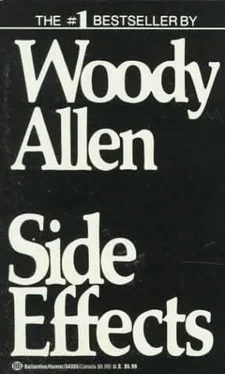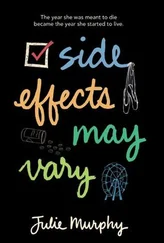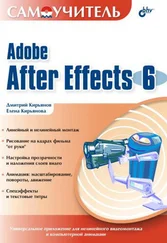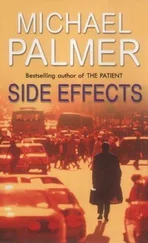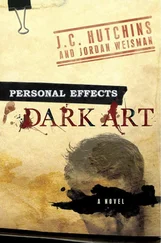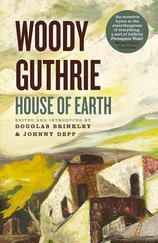It is easy to remember the public Needleman. Brilliant, committed, the author of Styles of Modes. But it is the private Needleman I will always fondly recall, the Sandor Needleman who was never without some favorite hat. Indeed, he was cremated with a hat on. A first, I believe. Or the Needleman who loved Walt Disney movies so passionately and who, despite lucid explanations of animation by Max Planck, could not be dissuaded from putting in a person-to-person call to Minnie Mouse.
When Needleman was staying at my house as a guest, I knew he liked a particular brand of tuna fish. I stocked the guest kitchen with it. He was too shy to admit his fondness for it to me, but once, thinking he was alone, opened every can and mused, "You are all my children."
At the opera in Milan with my daughter and me, Needleman leaned out of his box and fell into the orchestra pit. Too proud to admit it was a mistake, he attended the opera every night for a month and repeated it each time. Soon he developed a mild brain concussion. I pointed out that he could stop falling as his point had been made. He said, "No. A few more times. It's really not so bad."
I remember Needleman's seventieth birthday. His wife bought him pajamas. Needleman was obviously disappointed as he had hinted for a new Mercedes. Still, it is the mark of the man that he retired to the study and had his tantrum privately. He reentered the party smiling and wore the pajamas to the opening night of two short plays by Arabel.
Brisseau was asleep in the moonlight. Lying on his back in bed, with his fat stomach jutting into the air and his mouth forming an inane smile, he appeared to be some kind of inanimate object, like a large football or two tickets to the opera. A moment later, when he rolled over and the moonlight seemed to strike him from a different angle, he looked exactly like a twenty-seven-piece starter set of silverware, complete with salad bowl and soup tureen.
He's dreaming, Cloquet thought, as he stood over him, revolver in hand. He's dreaming, and I exist in reality. Cloquet hated reality but realized it was still the only place to get a good steak. He had never taken a human life before. True, he had once shot a mad dog, but only after it had been certified as mad by a team of psychiatrists. (The dog was diagnosed as manic-depressive after it had tried to bite off Cloquet's nose and then could not stop laughing.)
In his dream, Brisseau was on a sunlit beach and running joyously toward his mother's outstretched arms, but just as he began to embrace the weeping grey-haired woman, she turned into two scoops of vanilla ice cream. Brisseau moaned and Cloquet lowered the revolver. He had entered through the window and stood poised over Brisseau for more than two hours, unable to pull the trigger. Once, he had even cocked the hammer and placed the muzzle of the gun right in Brisseau's left ear. Then there was a sound at the door, and Cloquet leaped behind the bureau, leaving the pistol sticking out of Brisseau's ear.
Madame Brisseau, who was wearing a flowered bathrobe, entered the room, turned on a small lamp, and noticed the weapon protruding straight up out of the side of her husband's head. Almost maternally, she sighed and removed it, placing it beside the pillow. She tucked in a loose corner of the quilt, snapped off the lamp, and left.
Cloquet, who had fainted, awoke an hour later. For one panicky moment, he imagined he was a child again, back on the Riviera, but after fifteen minutes went by and he saw no tourists it came to him that he was still behind Brisseau's chest of drawers. He returned to the bed, seized the pistol, and again pointed it at Brisseau's head, but he was still unable to squeeze off the shot that would end the life of the infamous Fascist informer.
Gaston Brisseau came from a wealthy, right-wing family, and decided early in life to become a professional informer. As a young man, he took speech lessons so that he could inform more clearly. Once, he had confessed to Cloquet, "God, I enjoy tattling on people."
"But why?" Cloquet said.
"I don't know. Getting them in Dutch, squealing."
Brisseau ratted on his friends for the pure sake of it, Cloquet thought. Unredeemable evil! Cloquet had once known an Algerian who loved smacking people on the back of the head and then smiling and denying it. It seemed the world was divided into good and bad people. The good ones slept better, Cloquet thought, while the bad ones seemed to enjoy the waking hours much more.
Cloquet and Brisseau had met years before, under dramatic circumstances. Brisseau had gotten drunk at the Deux Magots one night and staggered toward the river. Thinking he was already home in his apartment, he removed his clothes, but instead of getting into bed he got into the Seine. When he tried to pull the blankets over himself and got a handful of water, he began screaming. Cloquet, who at that moment happened to be chasing his toupee across the Pont-Neuf, heard a cry from the icy water. The night was windy and dark, and Cloquet had a split second to decide if he would risk his life to save a stranger. Unwilling to make such a momentous decision on an empty stomach, he went to a restaurant and dined. Then, stricken with remorse, he purchased some fishing tackle and returned to fish Brisseau out of the river. At first he tried a dry fly, but Brisseau was too clever to bite, and in the end Cloquet was forced to coax Brisseau to shore with an offer of free dance lessons and then land him with a net. While Brisseau was being measured and weighed, the two became friends.
Now Cloquet stepped closer to Brisseau's sleeping hulk and again cocked the pistol. A feeling of nausea swept over him as he contemplated the implications of his action. This was an existential nausea, caused by his intense awareness of the contingency of life, and could not be relieved with an ordinary Alka-Seltzer. What was required was an Existential Alka-Seltzer-a product sold in many Left Bank drugstores. It was an enormous pill, the size of an automobile hubcap, that, dissolved in water, took away the queasy feeling induced by too much awareness of life. Cloquet had also found it helpful after eating Mexican food.
If I choose to kill Brisseau, Cloquet thought now, I am defining myself as a murderer. I will become Cloquet who kills, rather than simply what I am: Cloquet who teaches Psychology of Fowl at the Sorbonne. By choosing my action, I choose it for all mankind. But what if everyone in the world behaved like me and came here and shot Brisseau through the ear? What a mess! Not to mention the commotion from the doorbell ringing all night. And of course we'd need valet parking. Ah, God, how the mind boggles when it turns to moral or ethical considerations! Better not to think too much. Rely more on the body- the body is more dependable. It shows up for meetings, it looks good in a sports jacket, and where it really comes in handy is when you want to get a rubdown.
Cloquet felt a sudden need to reaffirm his own existence, and looked into the mirror over Brisseau's bureau. (He could never pass a mirror without sneaking a peek, and once at a health club he had stared at his reflection in a swimming pool for so long that the management was forced to drain it.) It was no use. He couldn't shoot a man. He dropped the pistol and fled.
Out on the street, he decided to go to La Coupole for a brandy. He liked La Coupole because it was always bright and crowded, and he could usually get a table-quite a difference from his own apartment, where it was dark and gloomy and where his mother, who lived there, too, always refused to seat him. But tonight La Coupole was filled. Who are all these faces, Cloquet wondered. They seem to blur into an abstraction: "The People." But there are no people, he thought-only individuals. Cloquet felt this was a brilliant perception, one that he could use impressively at some chic dinner party. Because of observations such as this, he had not been invited to a social gathering of any sort since 1931.
Читать дальше
